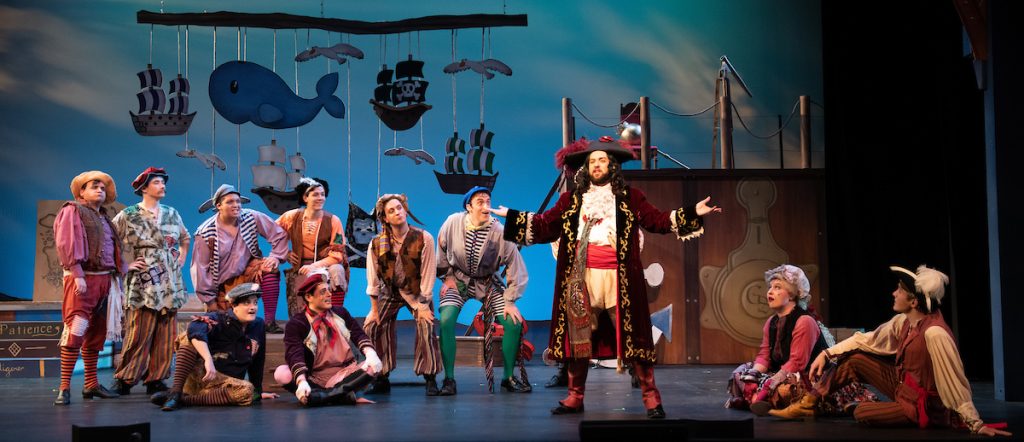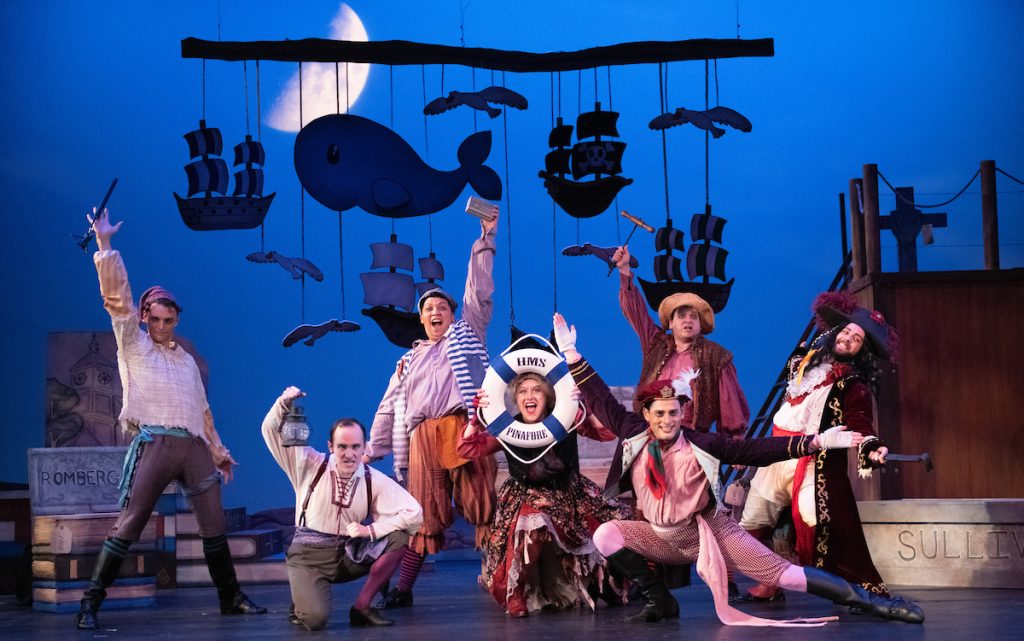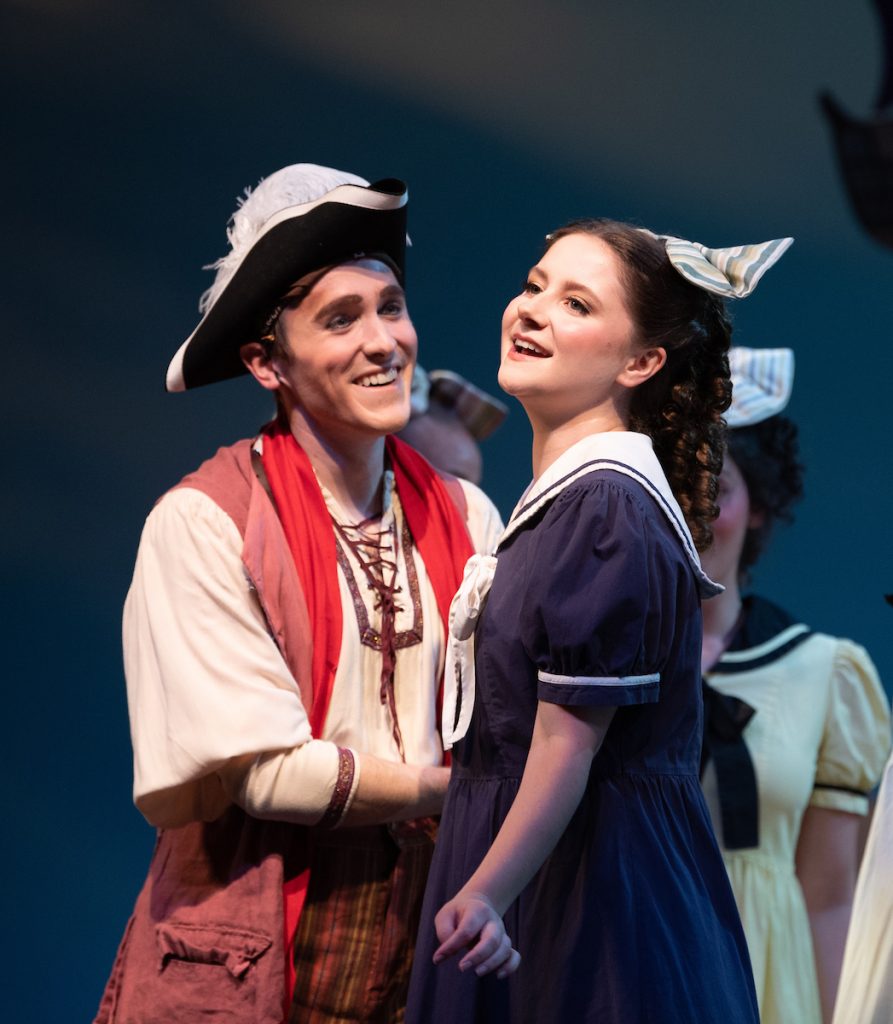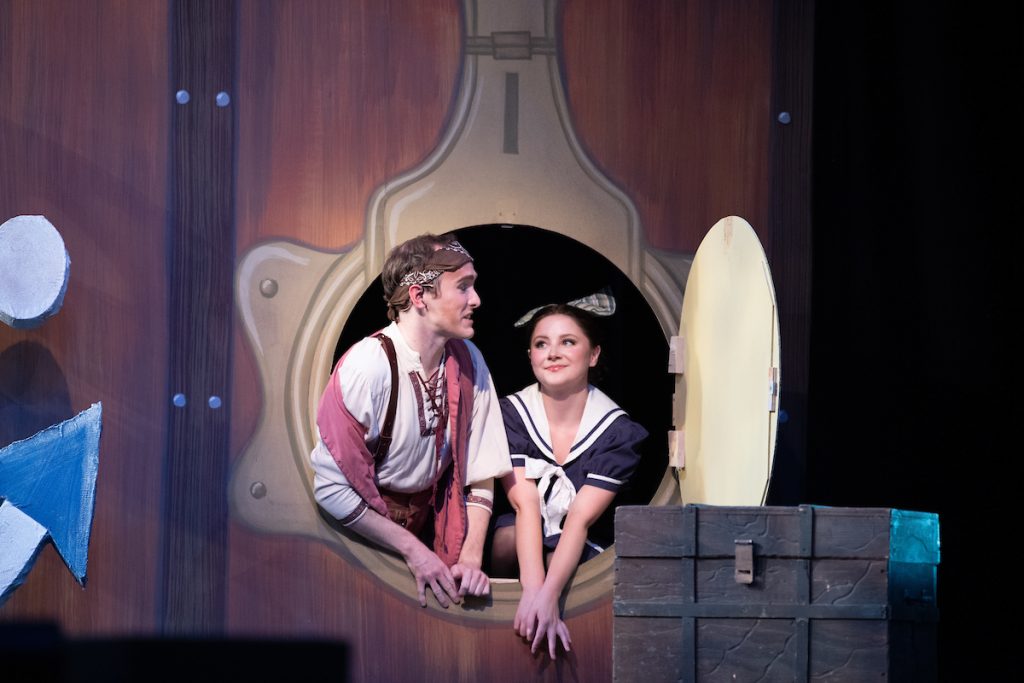by Daniel Hathaway
Ohio Light Opera has expanded its repertoire beyond the Savoy operas that originally defined the company, but it still finds room to produce one or two shows every season by the brilliant team of William Schwenck Gilbert and Arthur Seymour Sullivan, who found so many ways to poke fun at the cozy conventions of Victorian England.
This season’s G&S show, Pirates of Penzance, subtitled “The Slave of Duty,” spins its plot around young Frederick, sung by the clear-voiced tenor Spencer Reese, who does double duty as choreographer of the show’s athletic ensemble numbers.
As a child, Frederick was supposed to be apprenticed to a pilot (ship’s captain to us Yankees), but Ruth, his hard-of-hearing nursemaid (Abby Kurth), now still on duty in her ungainly late 40s, misunderstood his father’s wishes and got him indentured to a crew of pirates headed up by the swashbuckling Pirate King (the riveting baritone Mark Hosseini).
Now Frederick is just about to come of age and be released from his servitude, when two things happen. He meets the lovely young Mable (Sadie Spivey), daughter of Major-General Stanley (Vincent Gover), who’s the only woman Frederick’s ever known besides his nursemaid. And a re-reading of his indenture papers reveals that having been born on February 29, he’s actually decades, not days away from escaping the pirates.
Other complications arise, all to be almost magically resolved in the second act by a Victorian “Regina ex machina,” when an appeal of loyalty to the Queen removes all conflicts and misunderstandings between sailors, pirates, and police; reveals that the pirates are really noblemen pretending to be orphans; and leaves everyone living happily ever after, etc.
This season’s Ohio Light Opera company boasts excellent acting and ensemble skills, and is unusually long on vocal talent. Mable’s coloratura aria, “Poor Wandering One,” could serve as an audition piece for the role of Queen of the Night, and Sadie Spivey made it a show-stopper, with beautiful tone and phrasing, flawless diction, and vibrant high notes.
The famous patter song, “I Am the Very Model of a Modern Major-General,” itself the model for such tongue-twisting knockoffs as Tom Lehrer’s The Elements Song, gave Vincent Gover the opportunity to demonstrate expert breath control, pacing, and elocution, earning gold stars in each column, while occasionally stepping out of character for a line or two. “I can hum a fugue of which I’ve heard the music’s din afore, and whistle all the airs from that infernal nonsense Pinafore,” he sang with a knowing wink.
In the pit, conductor Wilson Southerland paced the score adroitly and drew fine playing from the OLO Orchestra. The audience was part of the event from the beginning, rising from their seats to join in singing God Save the Queen, once a mildly seditious act for Americans, but now part of Savoyard lore.
Visually gorgeous, the colorful production was designed by Kiah Kayser, lit by Daniel Huston and Rachel Aho, and costumed by Cindy Moon. Humorous touches abounded in Steven Daigle’s direction, like the Major-General’s oversized bunny slippers, the awkwardness of the police constables, and their treacle-thick cockney accents.
In the end, what sticks in the memory along with his wit and clever rhymes is W.S. Gilbert’s trenchant social commentary. How many in the audience could identify with these sentiments?
Oh, better far to live and die
Under the brave black flag I fly,
Than play a sanctimonious part,
With a pirate head and a pirate heart.
Away to the cheating world go you,
Where pirates all are well-to-do;
But I’ll be true to the song I sing,
And live and die a Pirate King.
Photos by Matt Dilyard.
Published on ClevelandClassical.com July 13, 2022.
Click here for a printable copy of this article









